
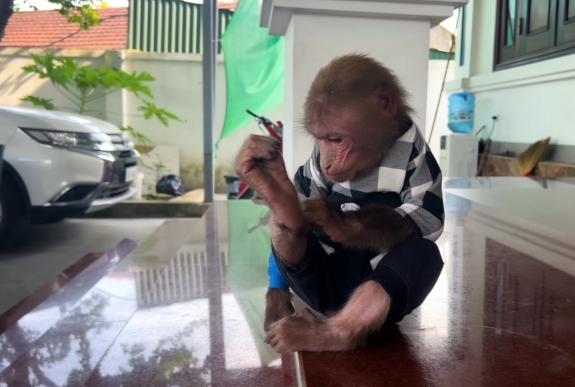



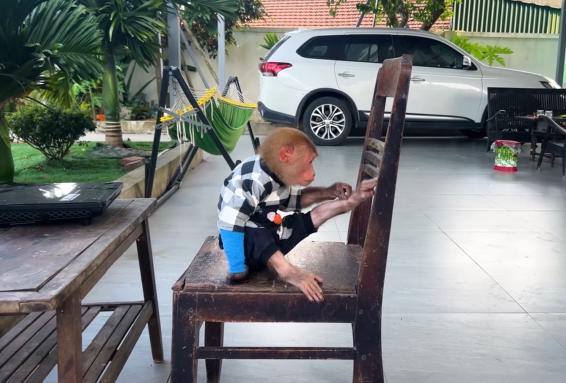
In the heart of a quiet mountain village, tucked between rolling hills and ancient forests, there lived a kind-hearted man named Bibi. Known for his warm smile and deep respect for nature, Bibi was admired not just for his wisdom, but also for his incredible cooking skills. Though he lived alone in a modest bamboo cottage, people often came from nearby villages to ask for his advice—or better yet, to taste one of his delicious meals.
But this story begins on a chilly autumn morning. The leaves had turned to brilliant shades of orange and red, and a crisp wind rustled through the valley. Bibi woke up feeling sluggish and achy. His joints ached slightly, and his energy felt drained, like a fire that had burned too long without new wood.
“I think my body is asking for something,” he said to himself, rubbing his hands together for warmth. “It’s time to nourish myself with something special.”
Bibi believed that food was more than just something to fill your belly. To him, it was medicine, energy, and even joy. So when his body felt off, he didn’t reach for a pill—he reached for his cooking pot.

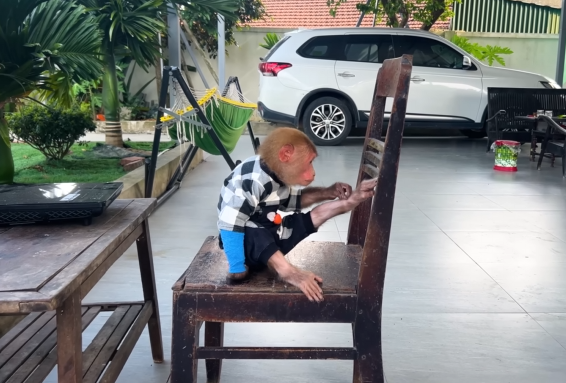
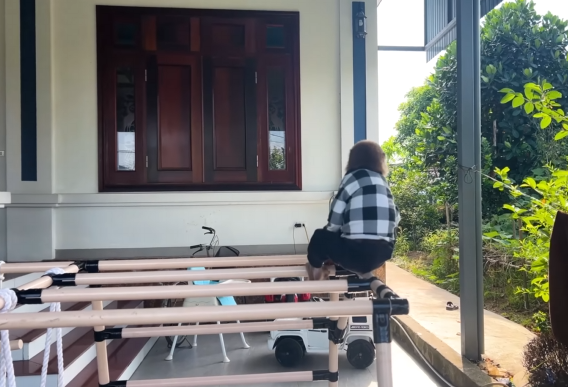


He opened the pantry, revealing jars of dried herbs and roots that he had carefully gathered over the years. Ginseng, goji berries, astragalus root, ginger, and Chinese angelica sat neatly labeled on the shelves. These weren’t just spices to Bibi—they were ancient healers passed down through generations.
He smiled and whispered, “Today calls for my famous chicken stew with herbal medicine.”
From his backyard, he selected fresh green onions, carrots, and lemongrass. Then he walked to the small henhouse at the edge of his garden, where he raised a few chickens. He gently picked the healthiest one, offering a silent prayer of gratitude. Bibi believed in balance—if he took from nature, he would always give something back.
By noon, the kitchen was filled with rich, mouthwatering aromas. He started by browning the chicken in sesame oil, letting it turn golden and crisp. Into the pot went slices of fresh ginger, chopped garlic, and a pinch of crushed Sichuan peppercorns for warmth. He poured in homemade chicken broth and added the herbs: a small handful of goji berries for the eyes, slices of ginseng for strength, and angelica root for circulation and blood health.
As the stew simmered, Bibi prepared a side of brown rice and brewed a pot of chrysanthemum tea. He hummed an old folk tune, the melody floating with the steam that curled from the pot like a spirit of the forest.
Three hours later, the stew was ready. The chicken had softened to perfection, falling off the bone with the touch of a spoon. The broth had turned golden with flecks of red and green herbs swirling through it. It smelled earthy and warm—like a hug in a bowl.
Bibi ladled the stew into a deep wooden bowl and carried it to his small wooden table by the window. Outside, the trees danced in the wind. Inside, he took a moment to inhale the aroma. Then he took the first spoonful.

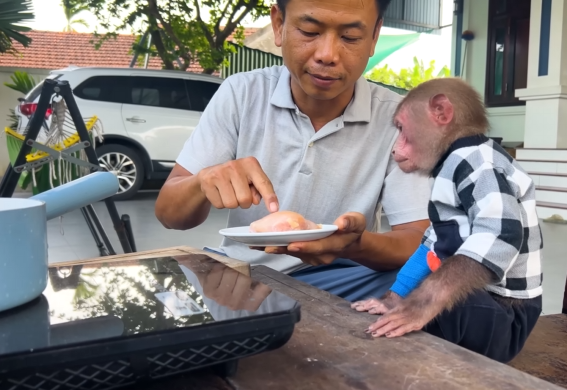

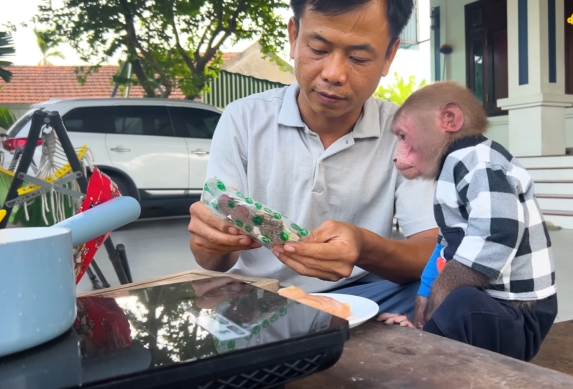
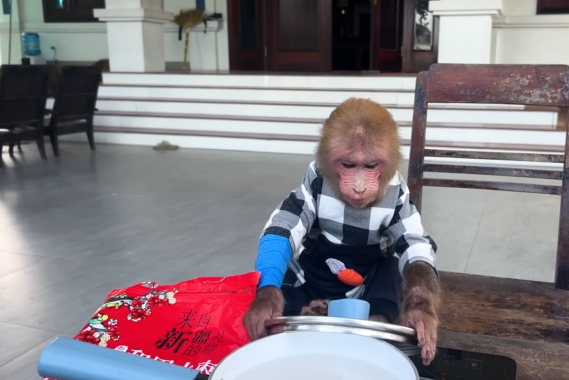
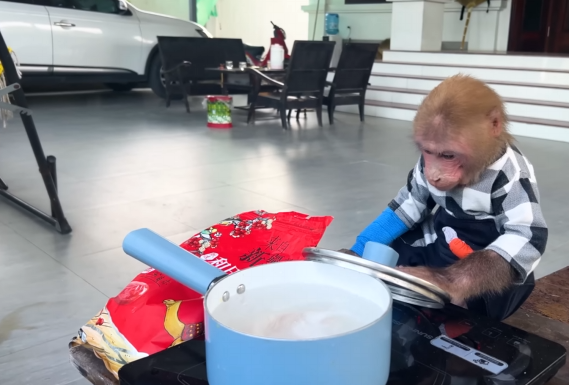

“Mmmm,” he murmured. The chicken was tender, the broth rich with flavor and layered with herbal complexity. Each bite was comforting, yet invigorating. He could feel the warmth spreading through his chest and arms like sunlight breaking through clouds.
Halfway through the meal, he could already sense a change. His fatigue melted, his mind became sharper, and even the ache in his knees eased. He laughed softly to himself, “Nature never fails.”
Just then, there was a knock at the door. It was Mei, a young girl from the village who often visited Bibi to help with chores and learn about herbs. She peeked in shyly.
“Uncle Bibi, I smelled something delicious all the way from the trail!”
Bibi chuckled. “Come in, child. You’ve got a good nose!”
He fixed her a smaller bowl, knowing she didn’t need as many medicinal herbs as he did. For Mei, he left out the ginseng but added extra carrots and noodles to sweeten the taste.
As they sat together, sharing the stew and stories of the day, the room felt warmer, brighter. Mei looked up at Bibi and asked, “Is this a special stew, Uncle?”
Bibi nodded. “Very special. When your body speaks to you, you must listen. This stew feeds more than the stomach. It feeds the spirit too.”
Mei smiled, chewing slowly. “I want to learn how to make it.”
“You will,” he replied. “But first, you must learn the herbs, their voices, and their gifts. Cooking with medicine means cooking with care.”
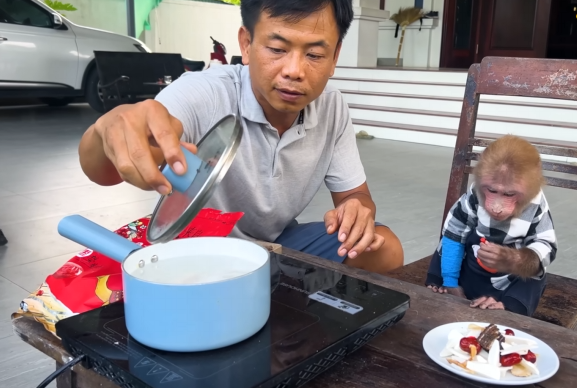
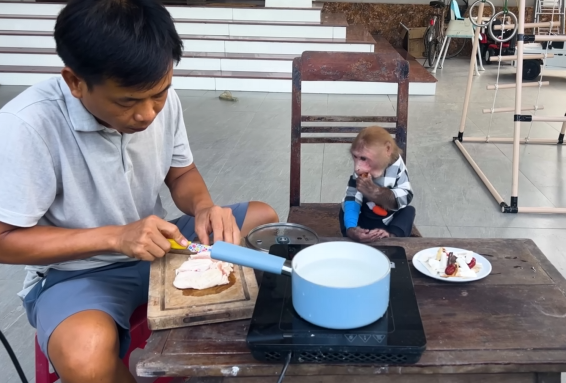
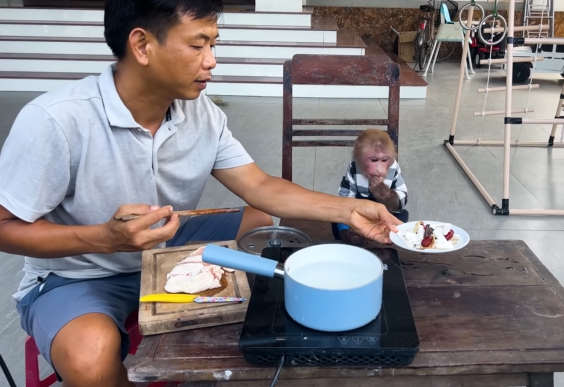
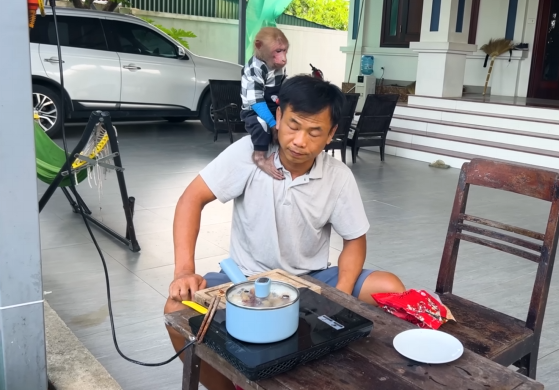

From that day on, Bibi began teaching Mei the secrets of his herbal kitchen. Every week, they collected ingredients from the forest, dried them under the sun, and stored them in glass jars with handwritten labels. Mei learned how ginger could warm the body, how goji berries helped with vision, and how ginseng gave strength to the weary.
Together, they prepared meals for elders in the village, especially in the cold months. Word spread that Bibi’s stew was not just delicious—it had a way of making people feel whole again. And while many tried to recreate it, only Bibi and Mei knew the true magic was not just in the ingredients, but in the intention behind them.
Years passed. Bibi grew older, his hair white like the mountain snow. Mei, now a young woman, had become a skilled herbalist and cook in her own right. One day, Bibi sat watching the golden sun dip behind the hills as Mei stirred a pot of chicken stew in his kitchen.
She brought him a bowl, and he took a sip with a smile.
“Just like mine,” he said, “but even better.”
She laughed, “That’s because you taught me with love.”
Bibi nodded slowly. “And that’s the most powerful ingredient of all.”
As the evening breeze rolled in, carrying the scent of herbs and home-cooked stew, Bibi leaned back in his chair. His body felt nourished, his spirit full. He had passed on more than a recipe—he had passed on a way of life.
And so, the story of Bibi and his super delicious chicken stew with herbal medicine lived on, not just in memory, but in every bowl lovingly served to those in need of comfort, healing, and care.


